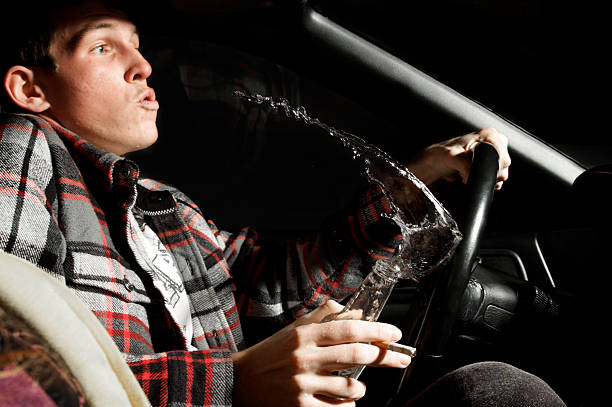When you’re involved in a drunk driving accident, understanding the legal process can be daunting. Authorities begin with an immediate investigation, collecting evidence and evaluating the incident’s severity. Charges can vary significantly, ranging from misdemeanors to felonies, influenced by factors like your blood alcohol content and the accident’s impact.
Navigating this process involves facing potential penalties—such as fines, community service, or license suspension—and considering various legal defense strategies. Have you ever wondered how questioning the traffic stop’s legality or the accuracy of sobriety tests can play a role in your defense?
Initial Investigation
The initial investigation begins immediately after the accident, focusing on gathering evidence and determining the cause. As soon as authorities arrive at the scene, their first task is to secure the area to prevent further accidents and ensure safety. You’ll notice officers documenting the scene meticulously: taking photographs, measuring distances, and collecting physical evidence like broken glass or vehicle parts. They’ll also speak with witnesses to get firsthand accounts of what happened.
One critical step is assessing whether alcohol plays a role. Officers often perform field sobriety tests and use breathalyzers to measure a driver’s blood alcohol content (BAC). If there’s suspicion of impairment, they may request a more precise blood test. You might also see them reviewing any available surveillance footage from nearby cameras.
Moreover, the investigation involves reviewing the driver’s history, including previous offenses and driving records. They’ll look into whether the driver obeyed traffic signals, the speed they traveled, and other factors like weather conditions. This thorough evidence collection is crucial for constructing an accurate picture of the incident, which will be essential later in any legal proceedings.
Charges and Penalties
Once the initial investigation is complete, authorities will determine the specific charges and penalties the impaired driver faces. Depending on the severity of the accident, the driver’s blood alcohol content (BAC), and any previous offenses, these charges can range from misdemeanors to felonies. For instance, a first-time offense with no injuries might only result in a misdemeanor, while an accident causing severe injury or death could lead to felony charges.
Penalties for drunk driving usually include fines, jail time, community service, and mandatory alcohol education programs. In many jurisdictions, first-time offenders might face fines ranging from a few hundred to several thousand dollars and a possible jail sentence of up to six months. Repeat offenders or those involved in severe accidents could face much harsher penalties, including several years in prison.
You should also be aware that most states impose administrative penalties like driver’s license suspension or revocation, even before a court conviction. Additionally, installing an ignition interlock device (IID) may be required, ensuring the driver can’t start their vehicle without passing a breathalyzer test. Understanding these potential charges and penalties can help you grasp the seriousness of drunk driving offenses.
Legal Defense Strategies
Understanding your legal defense strategies is crucial for an effective defense when facing drunk driving charges. First, consider challenging the legality of the traffic stop. If the police didn’t have reasonable suspicion to pull you over, any evidence gathered might be inadmissible in court.
Next, the accuracy of the breathalyzer and field sobriety tests must be scrutinized. These tests aren’t infallible; improper calibration, administration errors, or medical conditions can produce false positives. Your attorney can request maintenance records for the breathalyzer or argue that the test wasn’t administered correctly.
Another strategy is questioning the chain of custody for blood samples. If there’s any mishandling or contamination, the evidence could be compromised. Additionally, if you were arrested without being read your Miranda rights, your attorney might argue that any self-incriminating statements should be excluded.
You could also explore the “rising blood alcohol” defense. This argues that your BAC was below the legal limit while driving but increased to an illegal level by the time you were tested.
Lastly, consider negotiating a plea deal. Sometimes, accepting a reduced charge is in your best interest rather than risking a harsher penalty at trial. Always consult a qualified attorney to tailor these strategies to your specific case.

Leave a Reply